Zuellig Family Foundation conferred with Drs. Jess and Trining dela Paz Award 2025
Ateneo de Davao has conferred the Drs. Jess and Trining dela Paz Award to the Zuellig Family Foundation (ZFF), in recognition of its work in transformative leadership in public health. The award is given to honorary members, exceptional individuals, and organizations whose achievements and contributions to society reflect the highest ideals of leadership, scholarship, and service.
This award also recognizes ZFF’s exceptional commitment to public service, philanthropy, and societal betterment, and pays tribute to the Foundation’s extensive and impactful contributions, particularly in the areas of Universal Health Care implementation, Nutrition and Health Governance, and Adolescent and Youth Sexual and Reproductive Health. The esteemed members of the awards committee acknowledge the Foundation’s work and unwavering dedication, which has brought significant improvements, especially to underserved communities in Mindanao.
Transformative Impact on Universal Health Care and Primary Health Care
Strengthening local health systems and improving access for vulnerable communities to primary health care has been the cornerstone of The Zuellig Family Foundation’s work with local governments. From its initial pilot municipalities in 2008, ZFF has mainstreamed and scaled up its engagement by working with Department of Health (DOH) Centers for Health and Development, and provincial governments to ensure achievement of Universal Health Care (UHC) in the Philippines. ZFF’s work with the LGUs focuses on capacity building of governors and their provincial health teams to meet local health system maturity targets and ensuring access to primary health services. As a driving force for UHC, access to quality primary health care ensures that every Filipino’s right to optimal health outcomes is achieved.
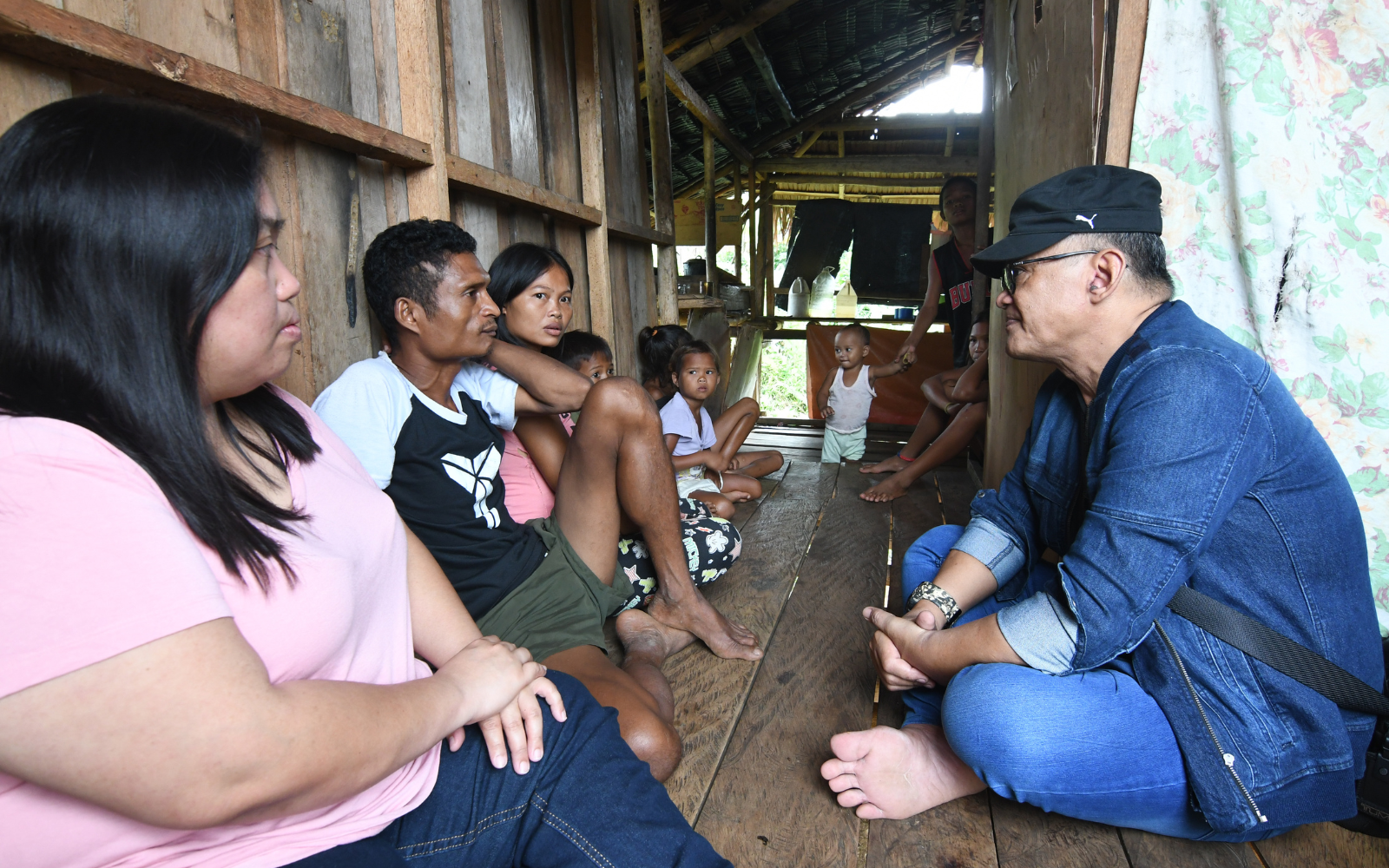
Commitment to Nutrition and Health Governance
Understanding the critical role of nutrition in overall health, ZFF has implemented numerous initiatives aimed at combating malnutrition among young children and pregnant women since 2017. These programs focus on providing capacity building and technical support to Local Chief Executives (governors and mayors) and local leaders to bridge systemic nutritional gaps among vulnerable populations and improve governance of health and nutrition programs.
ZFF has engaged with all six regions in Mindanao, working with a total of 13 provinces and eight cities over the years. Currently, ZFF continues to engage with ten provinces in the region, maintaining strong partnerships to enhance local capacities and outcomes. These sustained efforts have led to measurable improvements in the nutritional status of children and families, particularly in provinces such as Zamboanga del Norte, Sarangani, and Basilan.
Focus on Adolescent and Youth Sexual and Reproductive Health
Recognizing the importance of addressing the unique health needs of adolescents and the youth, the Zuellig Family Foundation has prioritized initiatives to contribute to the reduction of adolescent pregnancies, including cities and municipalities in Mindanao through The Challenge Initiative (TCI) in partnership with William Gates Sr. Institute for Population and Reproductive Health and Johns Hopkins Bloomberg School of Public Health, and the Youth Leadership and Governance Program (YLGP), in collaboration with the United Nations Population Fund (UNFPA).

—
The Drs. Jess and Trining de la Paz award is named after an outstanding couple in Davao, both physicians. The Drs. Jess and Trining de la Paz Award is intended to honor laymen and laywomen whose lives and work reflect love and concern for their fellows, following the Gospel’s great commandment of love.
Building Bridges in Healthcare: Aklan’s Bold Steps Toward a Patient-Centered Future
On March 27, 2025, key health leaders from across the country convened at the Bayang Malusog Community of Practice (CoP) session. The event brought together provincial representatives to share progress, challenges, and best practices in building better healthcare systems.
Among the speakers was Dr. Leslie Ann Luces Sedillo, Aklan’s Provincial Health Officer II. She shared several difficulties the province faced before the implementation of the Universal Health Care (UHC) Law.
Aklan has one Level 3 hospital—the Dr. Rafael S. Tumbokon Memorial Hospital (DRTMH)—while most of its other hospitals are infirmaries. This makes it hard for many residents to get the care they need. Delays in national funding also create problems, slowing down the delivery of medical resources. On top of that, frequent changes in healthcare guidelines make planning and implementation harder for local officials.
Despite these obstacles, Aklan is making strong progress.
Creating Local Health Zones
In 2019, Aklan started to set up six, previously four, district health zones. These zones aim to bring healthcare closer to people’s homes, making services more accessible and well-funded.

Improving Health Facilities
To make these districts work, Aklan is boosting its healthcare workforce. Each district must have key professionals, such as health managers, pharmacists, and medical technologists. Birthing centers and upgraded information systems are also being added to improve service delivery. This setup allows primary care facilities to handle basic needs, while hospitals focus on patients who need more complex care.
Smart Use of Special Health Funds
Aklan uses a 70-30 budget system—70% goes to operational costs, while 30% supports health worker incentives. The province has also made agreements with neighboring areas to serve patients from outside Aklan, showing their commitment to inclusive care.
Aklan is laying a strong foundation for a healthcare system that puts patients first. Still, better information-sharing between facilities is needed. Improving how health centers communicate will help ensure patients get the right care at the right time.
By continuing to build these bridges in healthcare, Aklan is leading the way toward a future where all residents—no matter where they live—can access quality, patient-centered care.
Author: Lousheil Baradi
Related articles:
Cotabato’s Push for Better Nutrition and Adolescent Health
The Zuellig Family Foundation (ZFF), led by President and Executive Director Austere Panadero, facilitated an executive session with Governor Emmylou “Lala” Mendoza of the Province of Cotabato along with the Provincial Nutrition Committee, to tackle key challenges in nutrition and adolescent health last March 21, 2025 at the Provincial Capitol of Cotabato.
The session is the first major engagement under the two leadership modules of the Nutrition Leadership for Equity Acceleration Program (NutriLEAP), a collaboration between ZFF and the League of Provinces of the Philippines (LPP). While Cotabato has reduced stunting rates of children under five years old to 3.28% in 2024 from 4.09% in 2023, the increasing number of nutritionally-at-risk teenage pregnant women remains a concern (Source: Provincial Operation Timbang Report of Cotabato for 2023 and 2024).
Tracking Vulnerable Pregnant Women
One of the main challenges discussed was early identification of teenage pregnancies to ensure timely interventions. “Kailangan mabilis makita ang mga buntis—how early can we track pregnant women? And in relation to that, how do you now track who is vulnerable?” Panadero asked.
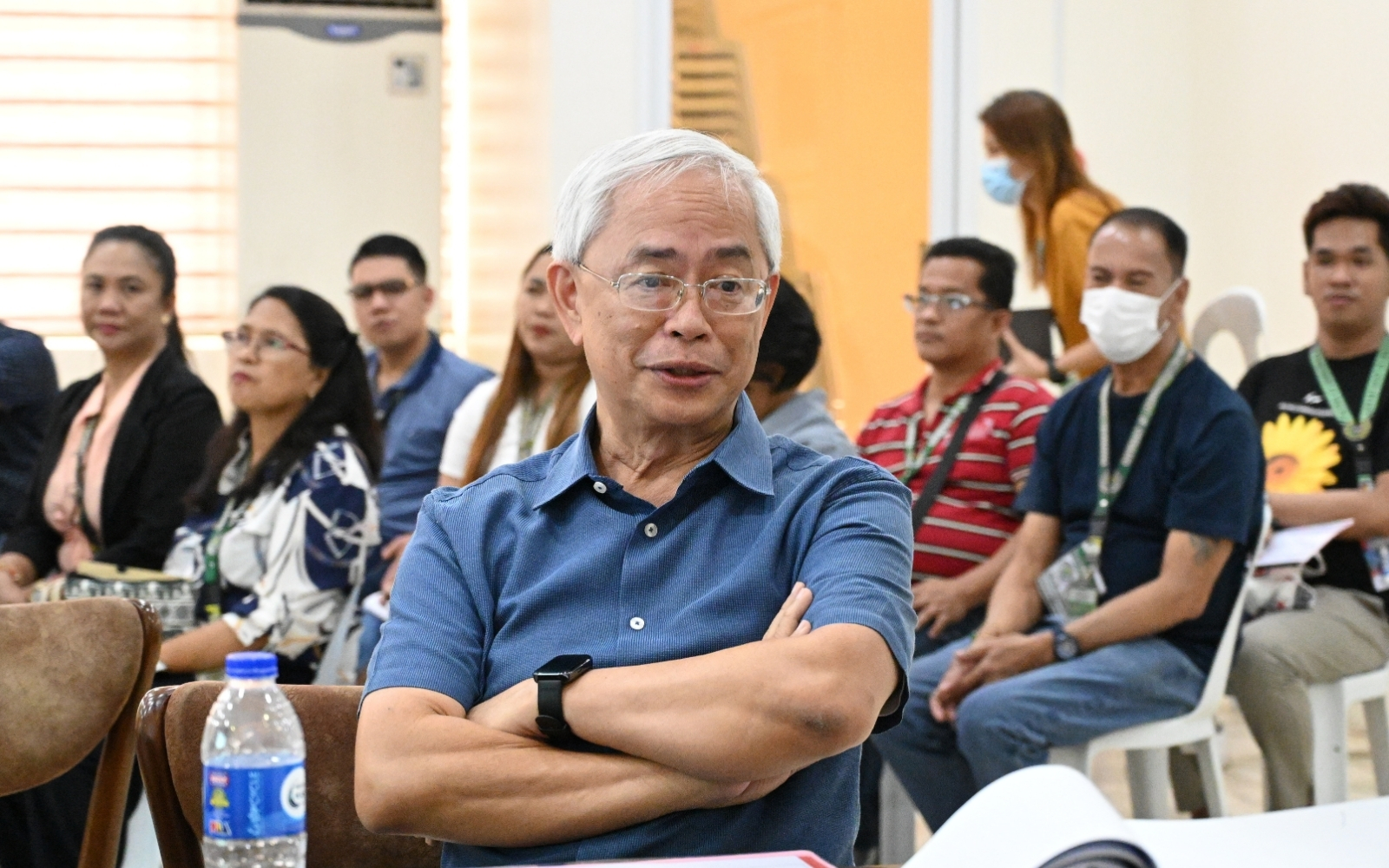
The Department of Education (DepEd) pointed out that teenage pregnancies are often detected too late, usually when students drop out around their sixth month of pregnancy. This broadened the discussions on the paradigm of desensitized stigma around pregnant women around schools in the province, and the maturity of these teens to figure out the realities of carrying a child and rearing their futures while they are also forming one themselves.
Provincial government has definitely seen this not just as merely a health issue, but a call to action to respond to a bigger multi-faceted issue involving familial relations, religious sector, education, health, civil society organizations, and many more.
Preventive Strategies and Community Engagement
Governor Mendoza stressed the need for proactive measures through gender and development programs, reaching schools through initiatives such as immunization drives, moral recovery programs, and sports clinics. “We are very sensitive to all interventions deployed to the youth. Preventive intervention should be done, together with all my mayors, so we can respond to this widespread problem,” she said.
Data-Driven Decision-Making
To enhance intervention efforts, improving data quality and ensuring active involvement of nutrition officers at the municipal and city levels were recommended. Key actions include:
- Strengthening the Field Health Services Information System (FHSIS);
- Integrating nutrition-specific and nutrition-sensitive interventions;
- Aligning strategies with the First 1,000 Days (F1KD) approach; and
- Focusing on municipalities with the highest adolescent birth rates.
Leadership and Policy Alignment
Governor Mendoza pointed out the varying levels of commitment among municipal leaders. “Hindi kasi lahat ng mayor may appreciation na ganito. ‘Yung iba pa rin kasi, hindi ganun ka-familiar sa technical measures. Kailangan namin kayo para ipaintindi ito sa kanila,” she said. She emphasized the need to rally support from municipal and city leaders to prioritize nutrition and adolescent health programs.
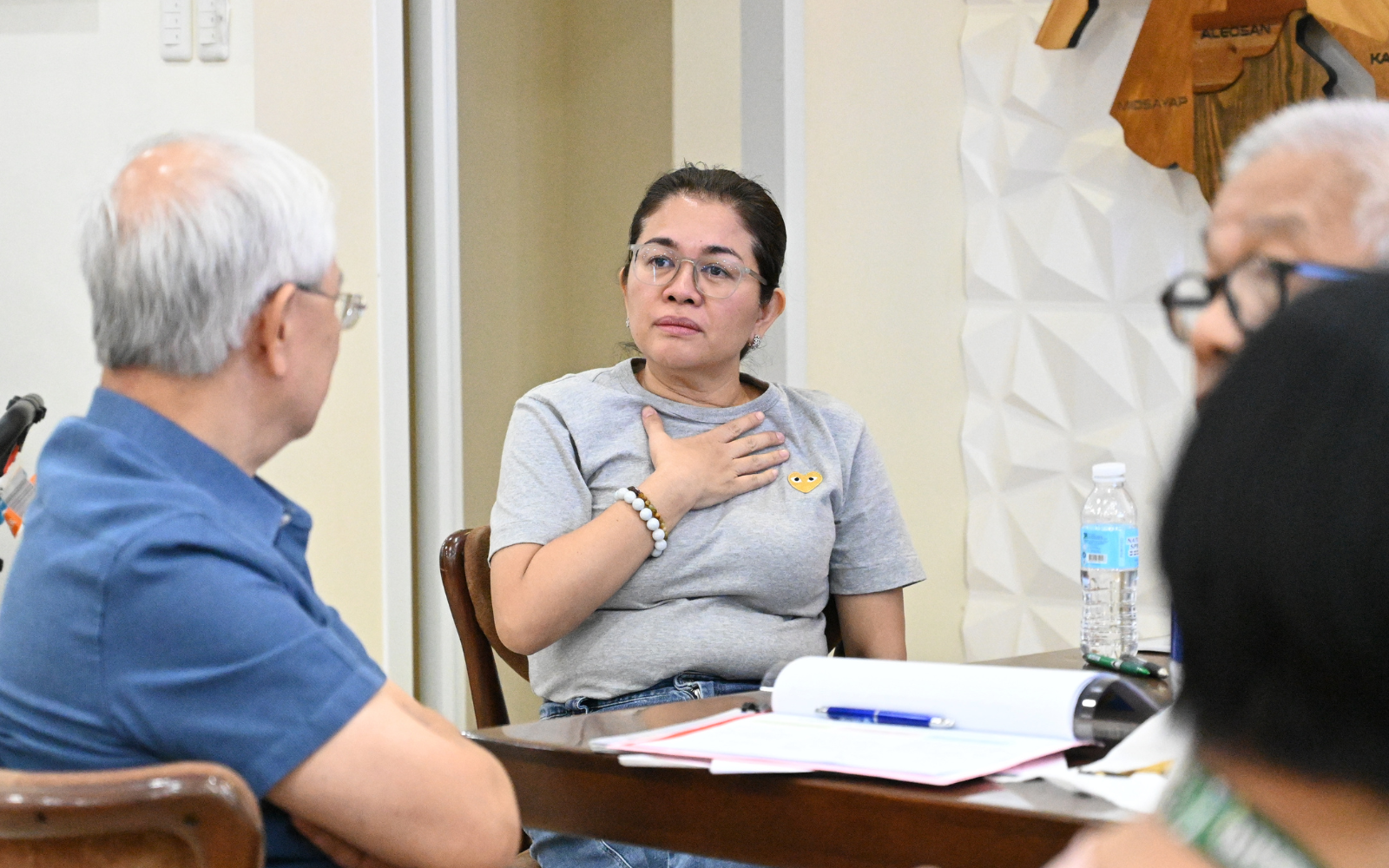
Strengthening Health Systems and Interagency Collaboration
Discussions also covered the need to clarify Universal Health Care (UHC) PhilHealth service coverage and intervention delivery. The Department of Health (DOH) committed to facilitating dialogues with local leaders to enhance coordination. DepEd officials acknowledged the importance of collaboration. “We’ve seen that we are receiving children that are already stunted—that is why we appreciate this platform. DepEd alone does not have the capacity to solve this problem,” they stated.
Mental Health and Holistic Interventions
Governor Mendoza also underscored the need for mental health support, including mental medical missions, recognizing that adolescent pregnancy is not only a physical health issue but also a psychological and emotional challenge that needs to be addressed.
Moving Forward
This session reinforced the collective responsibility of local government units, educational institutions, and health agencies in addressing adolescent nutrition and maternal health. As an overall commitment of ZFF, Dr. Joyce Ann Viar, Nutrition Portfolio Director, assured the provincial nutrition committee of their complementation in the learning track by providing an integrated program design and runway for nutrition, adolescent health and UHC tailor-fitted to the province’s needs and challenges.
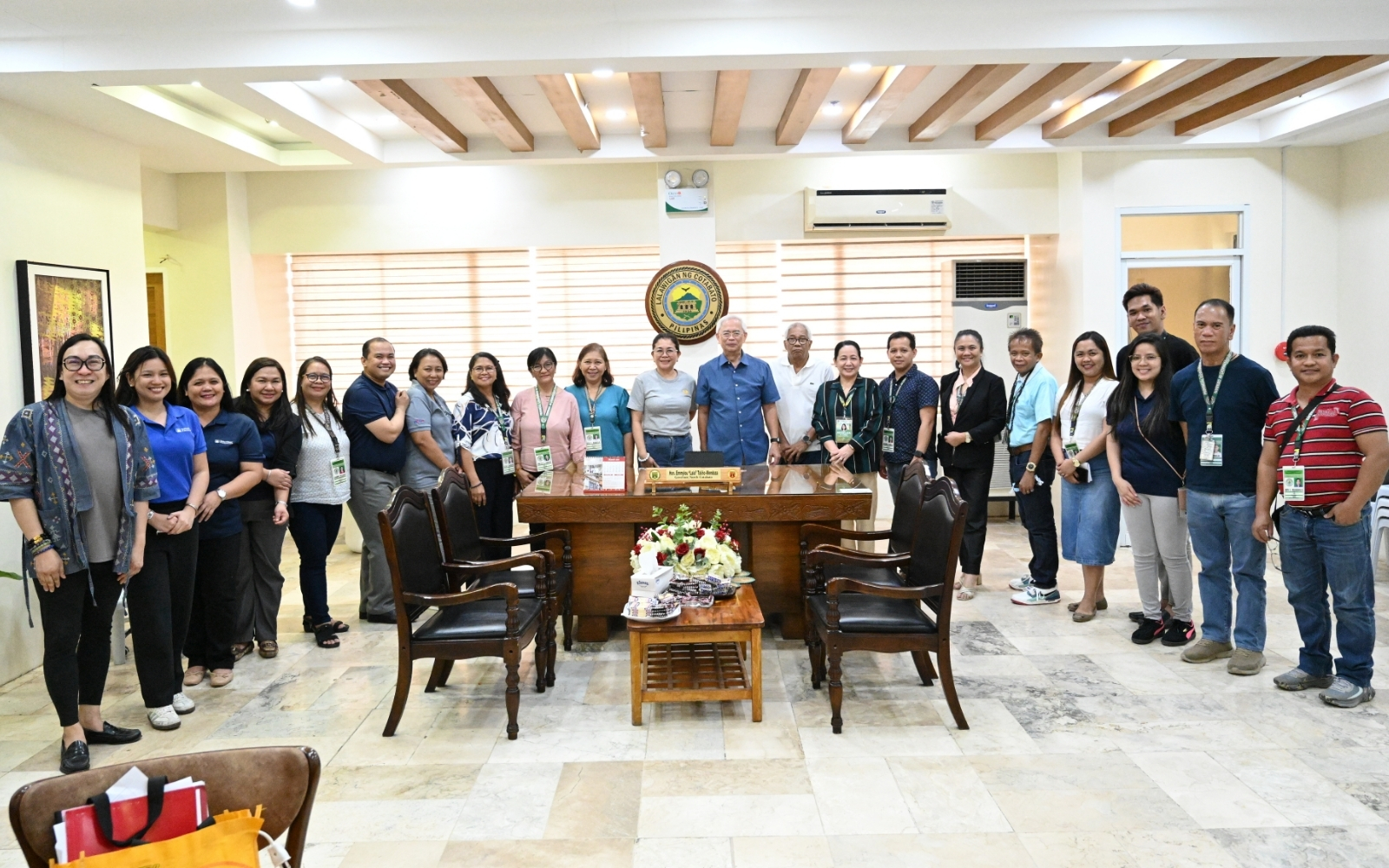
Related articles:
- NutriLEAP Monitoring and Coaching Visit: Strengthening Nutrition Governance in the Provinces
- NutriLEAP: A Pathway to Healthier Provinces
Fostering Hope: Tackling Persistent Adolescent Pregnancy Challenges in San Jose De Buan, Samar
Adolescent pregnancy remains a tough challenge in San Jose De Buan, Samar, but the community is taking action. Last March 17–18, 2025, the town launched Module 2 of the Barangay Expanded Youth Leadership and Governance Program (BEYLGP). BEYLGP, led by the Zuellig Family Foundation (ZFF), under the Joint Program on Accelerating the Reduction of Adolescent Pregnancy in Southern Leyte and Samar (JPARAP), aims to equip community leaders with the tools and knowledge needed to combat adolescent pregnancy effectively.
The event brought together barangay officials, Barangay Health Workers (BHWs), and youth leaders from Barangays Babaclayon, Can-aponte, Poblacion 1, and Poblacion 4, and the San Jose De Buan National High School.
While the number of adolescent pregnancies dropped slightly from 30 cases in 2023 to 26 in 2024, the first quarter of 2025 has already seen 11 cases. Poblacion had 10 cases in 2023, 8 in 2024, and 1 in 2025’s first quarter. Babaclayon saw 2 cases in 2023, 1 in 2024, and 1 in early 2025, while Can-aponte recorded 2 in 2023 but none since. (Source: Municipal Health Office, San Jose De Buan)
Health leaders acknowledge the increased use of contraceptives among young people, but challenges remain. Many youth hesitate to seek healthcare, some parents struggle with conservative beliefs that prevent open discussions about sexual health, and unregulated internet access exposes adolescents to harmful content. Poverty also limits access to education and health services, making prevention efforts more challenging.
The EYLGP Module 2 training aims to build leadership among barangay youth and officials, giving them the skills to push for lasting solutions. Participants reflected on past successes, explored new ways to tackle the problem, strengthened teamwork, and created a six-month action plan to fill existing gaps.
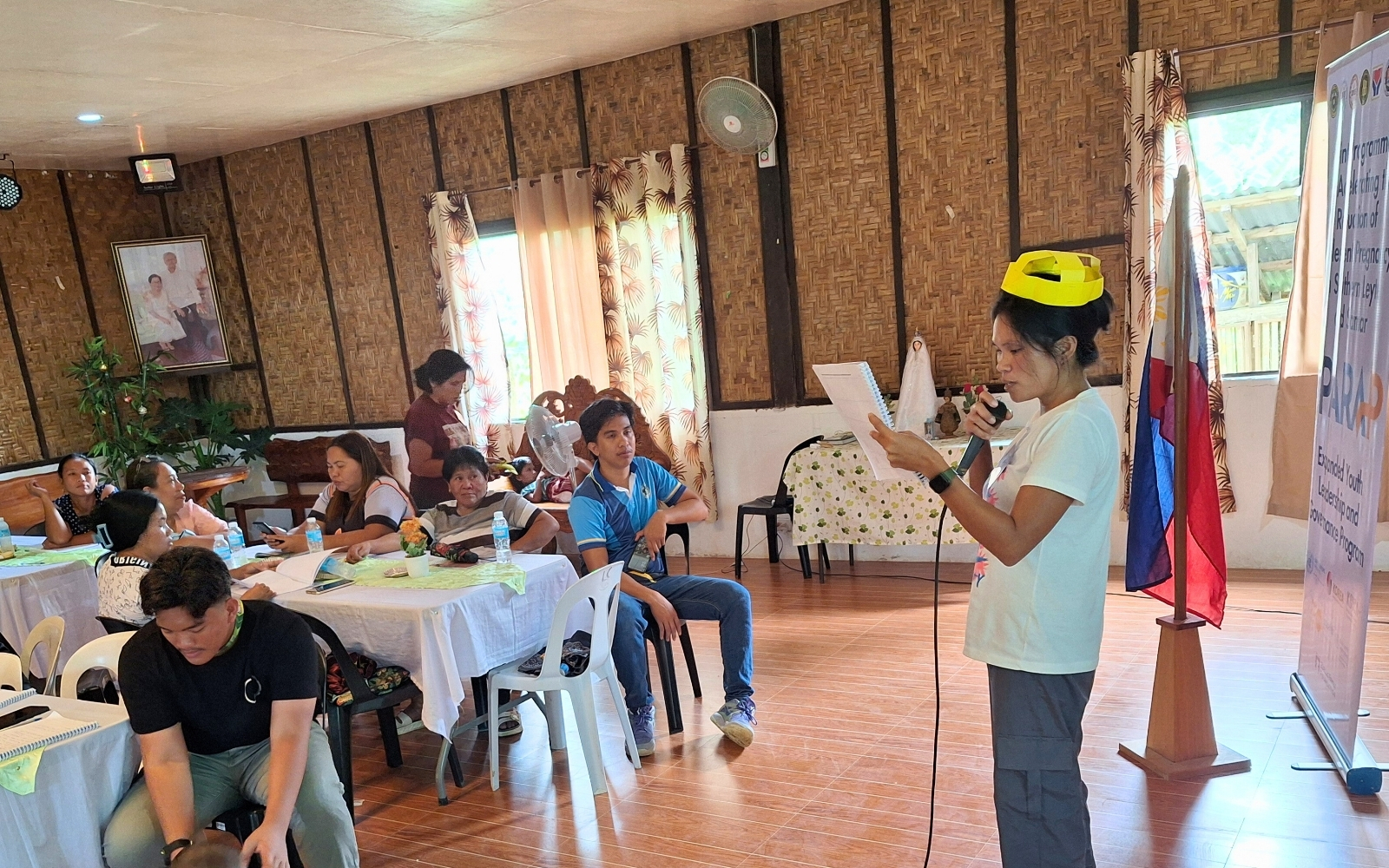
In one of the sessions, the module used De Bono’s Six Thinking Hats to guide the discussions. Liza Pajantoy, a BHW from Barangay Can-aponte, wearing the yellow hat, and Keith Kelvin Rapanan, a senior high school student leader, wearing the red hat, found that this method helped them share ideas more openly and with purpose. He reflected, “Addressing the issue with heart and empathy means truly connecting with my peers.” Pajantoy added, “As a BHW, we need to think about how to encourage others to join the cause, especially when it comes to adolescent pregnancy in our barangay.”
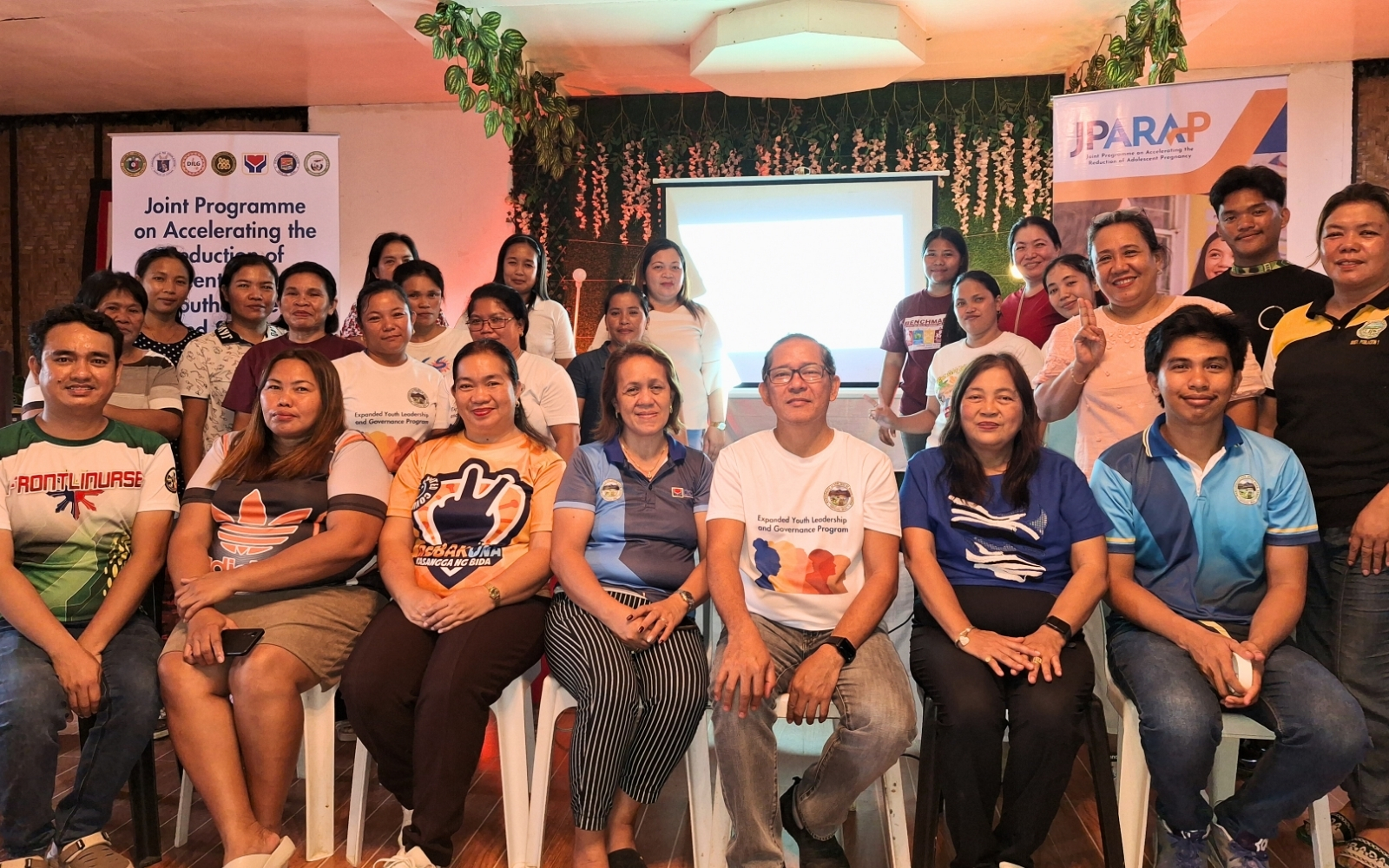
The Municipal Guiding Coalition hopes to replicate the training to cover all 14 barangays and in local schools throughout the municipality. With the midterm elections approaching, they remain hopeful that the local government will continue prioritizing adolescent pregnancy prevention. By strengthening leadership and collaboration, San Jose De Buan is making meaningful progress in protecting its youth and ensuring a healthier future for the community.
Related article:
Strengthening Capacities of Nutrition Leaders and Frontliners in Sta. Monica, Siargao
In the coastal town of Sta. Monica in Siargao Island, the local government has long been committed to addressing nutrition issues, but new efforts to strengthen the roles of stakeholders are showing promising results.
While the town has existing nutrition programs, their partnership with the Zuellig Family Foundation (ZFF) through its Municipal Nutrition Governance Program (MNGP)-Nutrition and Health Leadership (NutriHeaL) under the Ahon Siargao initiative took a more focused approach. This program aims to enhance coordination and equip local leaders to take more impactful actions in addressing malnutrition, particularly stunting.
Sta. Monica faces a pressing issue with child stunting, having ranked among the top three municipalities in Surigao del Norte for the condition, according to the National Nutrition Council (NNC). Despite having nutrition programs like supplemental feeding in place, the prevalence of stunting among children under two was still at 32.17% in 2021.
Sta. Monica is a coastal town with a population of 9,554 people spread across 11 barangays. Most of the residents rely on fishing for their livelihood, which often leaves them vulnerable to economic instability. Dr. Arlene Sebastian, Municipal Health Officer, believes that poverty is a major contributor to the ongoing problem. “Poverty is not merely the absence of adequate food on the table; it’s also the struggle to sustain any progress made, even with supplemental feeding, due to the ongoing challenges faced by families and caregivers,” said Dr. Sebastian.
A Deep Dive into Local Realities
To better understand the local context, Sta. Monica’s leadership participated in a Deep Dive, a guided community immersion, which involved visiting a family in Barangay Mabuhay. This event opened the eyes of local leaders to the harsh realities families face. Mayor Arwela Dolar shared that the experience deepened her empathy and reshaped her understanding of nutrition’s importance. Before participating in the program, she had viewed nutrition as the responsibility of health and nutrition officers. However, she now sees it as a broader issue that involves education, poverty, and awareness.
Dianette Evangelista, Budget and HR Officer, observed that one of the main problems is a lack of nutritional knowledge among mothers, even though they may know what they should be doing. Many families struggle to implement proper nutrition practices, and there is a general misconception that nutrition is only a concern during Nutrition Month every July, rather than an ongoing responsibility.
Leadership Actions for Change
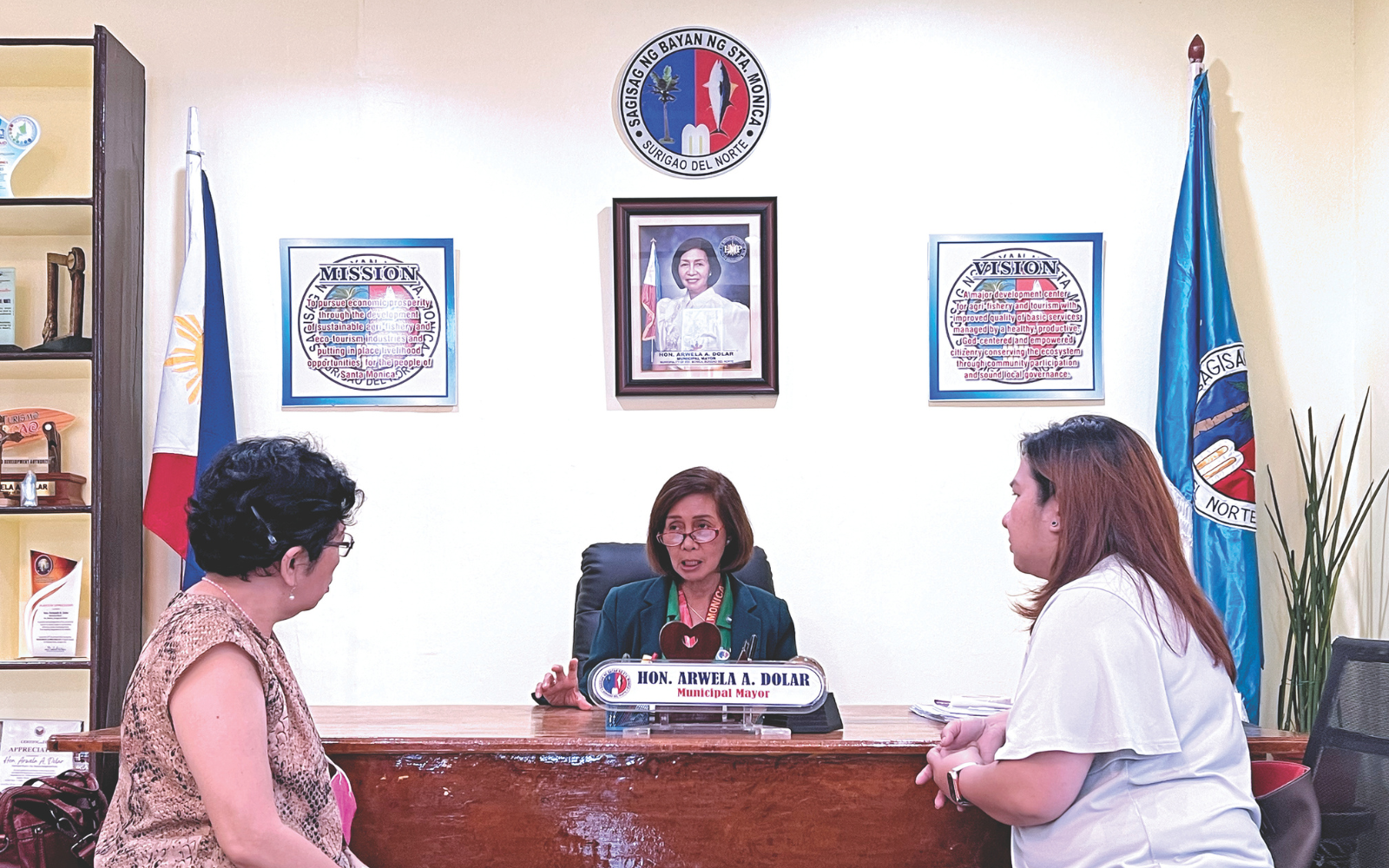
With a renewed sense of urgency, the Sta. Monica team started adopting more comprehensive strategies to tackle nutrition. The Municipal Nutrition Action Plan (MNAP) for 2023-2025 was introduced, providing a clear roadmap for addressing nutrition needs in the coming years. The town also implemented national policies like the Kalusugan at Nutrisyon ng Mag-nanay Act, which focuses on improving the health and nutrition of mothers and children, and the Milk Code, which promotes breastfeeding.
Regular quarterly meetings of the Municipal Nutrition Committee (MNC), led by Mayor Arwela, have become a vital platform for planning and evaluating nutrition-related initiatives. These meetings allow stakeholders to align their efforts and ensure progress. Additionally, the town has invested in nutrition monitoring tools such as salter scales, laptops, and record books to improve data collection and evidence-based planning.
The local government is also focused on strengthening the roles of local leaders through training. This includes the Barangay Leadership and Planning for Nutrition Security (BLPNS) Training, which was rolled out to all barangays in December 2023, helping local leaders understand the importance of nutrition security.
Community Engagement and Policy Development
To ensure the sustainability of these efforts, the Municipal Nutrition Action Officer (MNAO), Medelyn Dolar, has been advocating for increased community participation and involvement in nutrition planning. The town’s focus is not only on government intervention but also on empowering barangay leaders and residents to take responsibility for improving nutrition outcomes.
Trainings for Barangay Nutrition Scholars (BNSs) and Barangay Health (BHWs) Workers were also conducted on various aspects of nutrition, including lactation management, mental health, and healthy lifestyles, all aimed at equipping the community with the knowledge they need to make better nutrition choices.
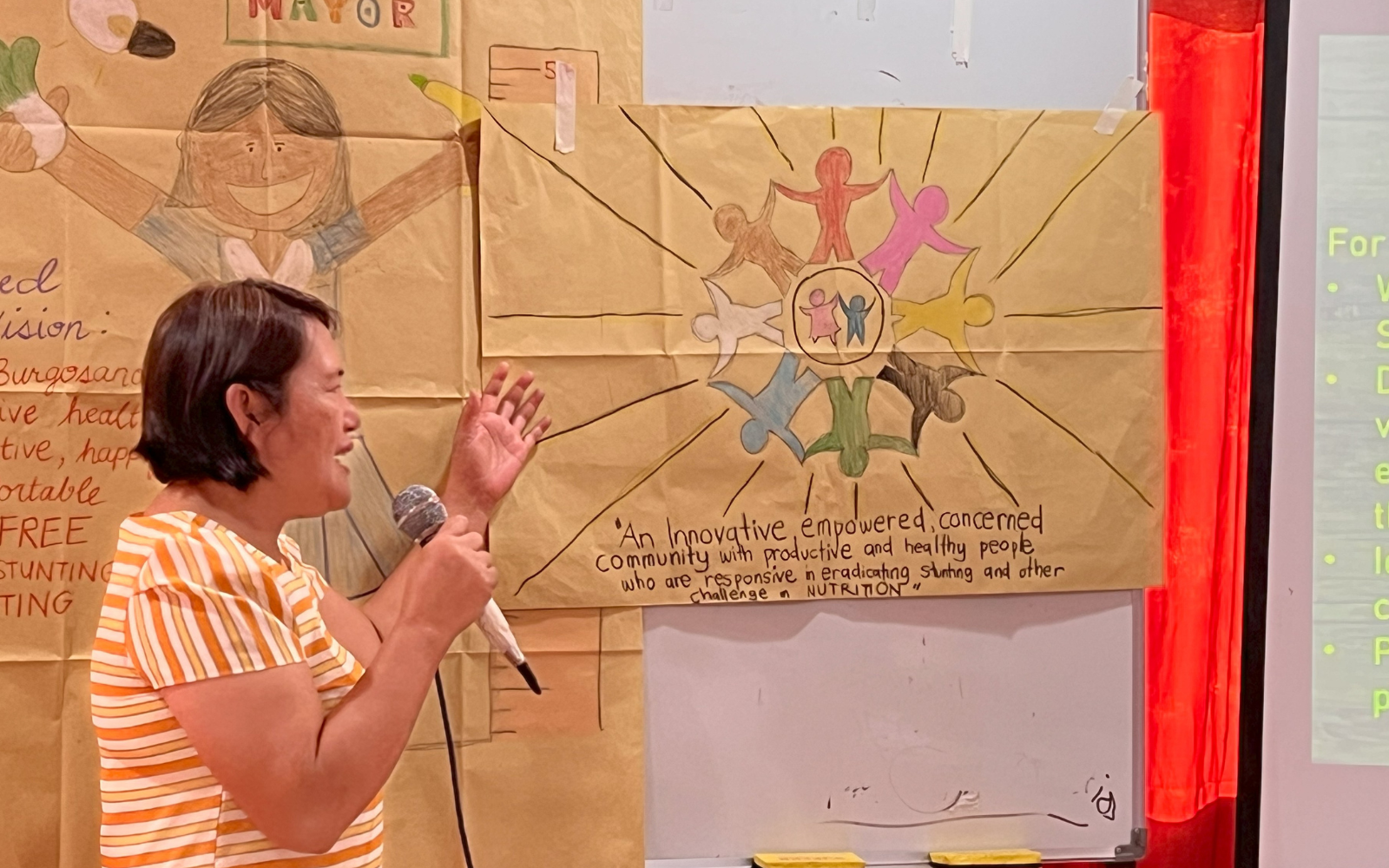
Positive Outcomes and Progress
Sta. Monica has made notable progress in improving nutrition indicators. Stunting among children aged 0-59 months decreased from 32.17% in 2021 to 20.00% in 2022, though it slightly increased to 21.10% in 2023. Wasting also saw a reduction from 7.68% in 2021 to 2.40% in 2022, though it rose again to 4.70% in 2023. This fluctuation can be linked to the increase in the coverage of Operation Timbang Plus, which grew from 66.09% in 2021 to 86.61% in 2023.
The town now conducts monthly monitoring of key nutrition indicators, ensuring that early interventions are made for malnourished children. Through these efforts, the Supplemental Feeding Program (SFP) continues to provide crucial nutrition support to children aged 6 to 59 months, with multivitamins being distributed to pregnant women as well.
As Sta. Monica continues its work to improve the health and nutrition of its residents, there is hope that with sustained efforts, the prevalence of malnutrition will decrease. By engaging parents, strengthening leadership at all levels, and improving community awareness, Sta. Monica is paving the way for better health outcomes for its children and families.
Related articles:
- Building Stronger Nutrition Systems in Siargao: The Ahon Siargao Experience
- Empowering Barangays and Communities through Nutrition Governance: Pilar’s Journey
- Leveraging Multi-stakeholder Collaboration to Improve Nutrition Services in Burgos, Siargao
Leveraging Multi-stakeholder Collaboration to Improve Nutrition Services in Burgos, Siargao
The municipality of Burgos, located in the northeastern part of Siargao Island, relies primarily on copra production and fishing for livelihood. However, as a fifth-class municipality, Burgos has faced persistent health and nutrition challenges, falling short of national standards for stunting and wasting. The devastation caused by Typhoon Odette in 2021 further worsened these issues.
Burgos, comprising six barangays and home to 4,185 residents, has a network of 43 Barangay Health Workers (BHWs) and 10 Barangay Nutrition Scholars (BNS). Upon taking office in 2022, Mayor Angie Arcena recognized the presence of existing nutrition programs led by former municipal health officer Dr. Christel Mendoza. However, despite these initiatives, malnutrition rates remained concerning.
Recognizing the Problem
In May 2023, the Burgos Nutrition Core Team participated in a Deep Dive activity, a guided community immersion, under Zuellig Family Foundation’s (ZFF) program, a part of the Ahon Siargao collective efforts. This experience highlighted the severity of Burgos’ nutrition challenges and underscored the need for a more coordinated response.
Sangguniang Bayan Member and Health Committee Chair Pedrita Domiños admitted that prior to the program, the local government unit (LGU) focused more on post-typhoon infrastructure recovery rather than nutrition policies. Likewise, Mayor Angie said, “I was not even aware of who and what a Municipal Nutrition Action Officer (MNAO) does before,” she said. “All the while, I thought it was just the team of Dr. Christel that had the responsibility for the nutrition situation of Burgos.”
The data stressed the urgency of intervention. Stunting prevalence among children aged 0 to 59 months in Burgos rose from 5.33% in 2021 to 19.16% in 2022.
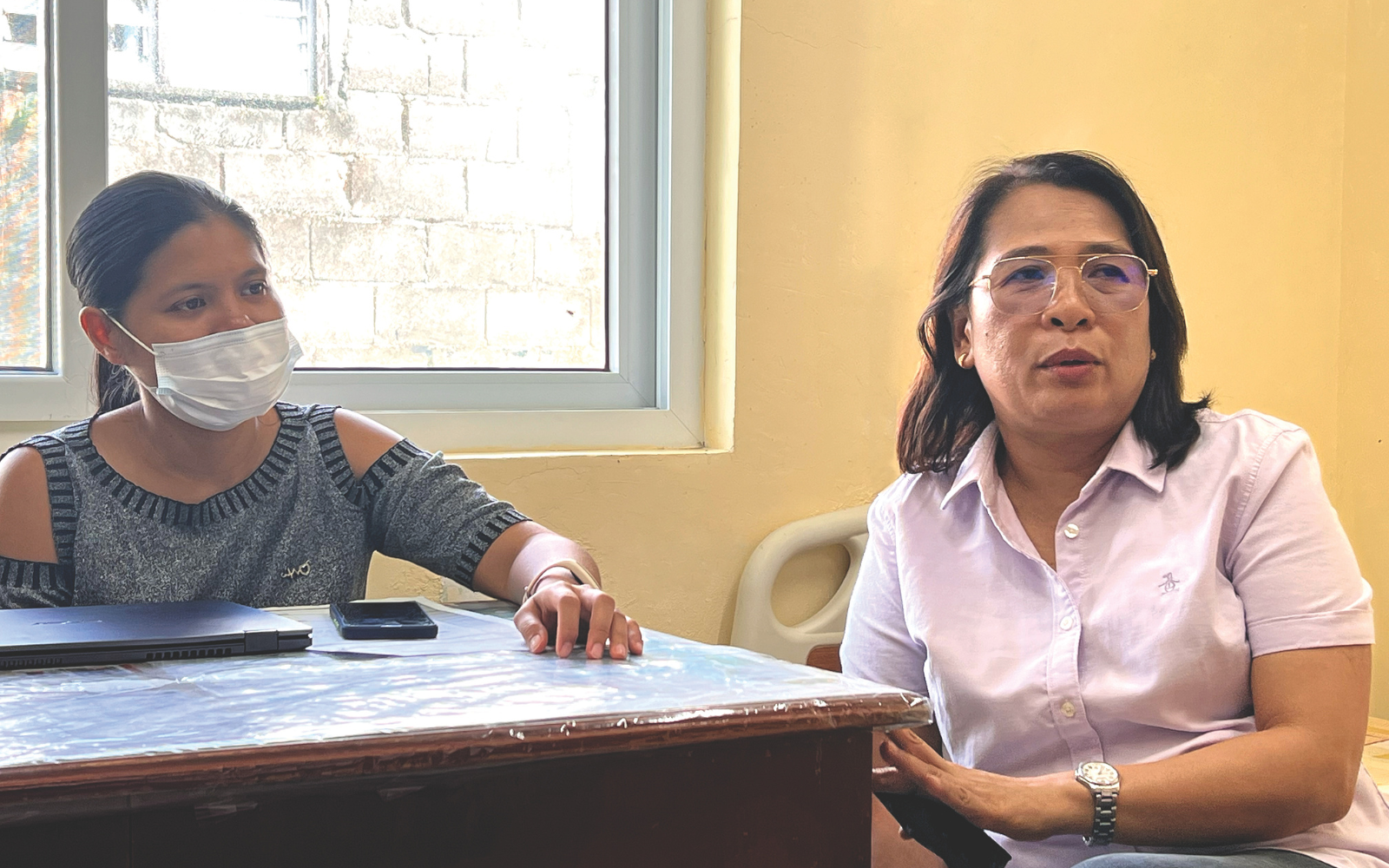
Strengthening Coordination and Leadership
One of the first steps taken was improving communication and coordination among stakeholders. Mayor Angie and the LGU prioritized enhancing nutrition services by mobilizing resources and strengthening collaboration with government agencies and private organizations.
The Municipal Nutrition Committee (MNC) was reorganized to meet quarterly, ensuring regular updates and coordinated planning. Budgetary challenges persisted, with funds originally allocated for nutrition redirected to typhoon recovery. Despite this, Burgos sought external support through the Ahon Siargao convergence program and resource mobilization efforts.
Government agencies such as DOH-CHD and NNC Caraga Region provided technical assistance, including the establishment of a Super rural health unit (RHU). The Super RHU is a facility that integrates maternal and child health and nutrition (MNCHN) services, ensuring better service delivery. The municipality also benefited from the NNC’s Tutok Kainan Dietary Supplementation Program (TK DSP) for pregnant women.
Partnerships for Nutrition Improvement
Burgos engaged multiple private organizations to support its nutrition programs:
- The Assisi Development Foundation provided MannaPack Fortified Rice for children and pregnant/lactating women.
- The MCHS71 Movers funded additional ingredients for feeding programs in child development centers.
- The SeaOil Foundation implemented its “Tugon sa Gutom” Program, training residents on sustainable home gardening.
- Tanglaw ni Teresa Inc. trained Child Development Workers and provided instructional materials and water purifiers for childcare centers.
Workshops and awareness activities were also conducted in partnership with local organizations. For example, Calls Over Ridges held nutrition workshops at San Mateo Elementary School, and Nature Kids’ Siargao engaged students in interactive nutrition education.
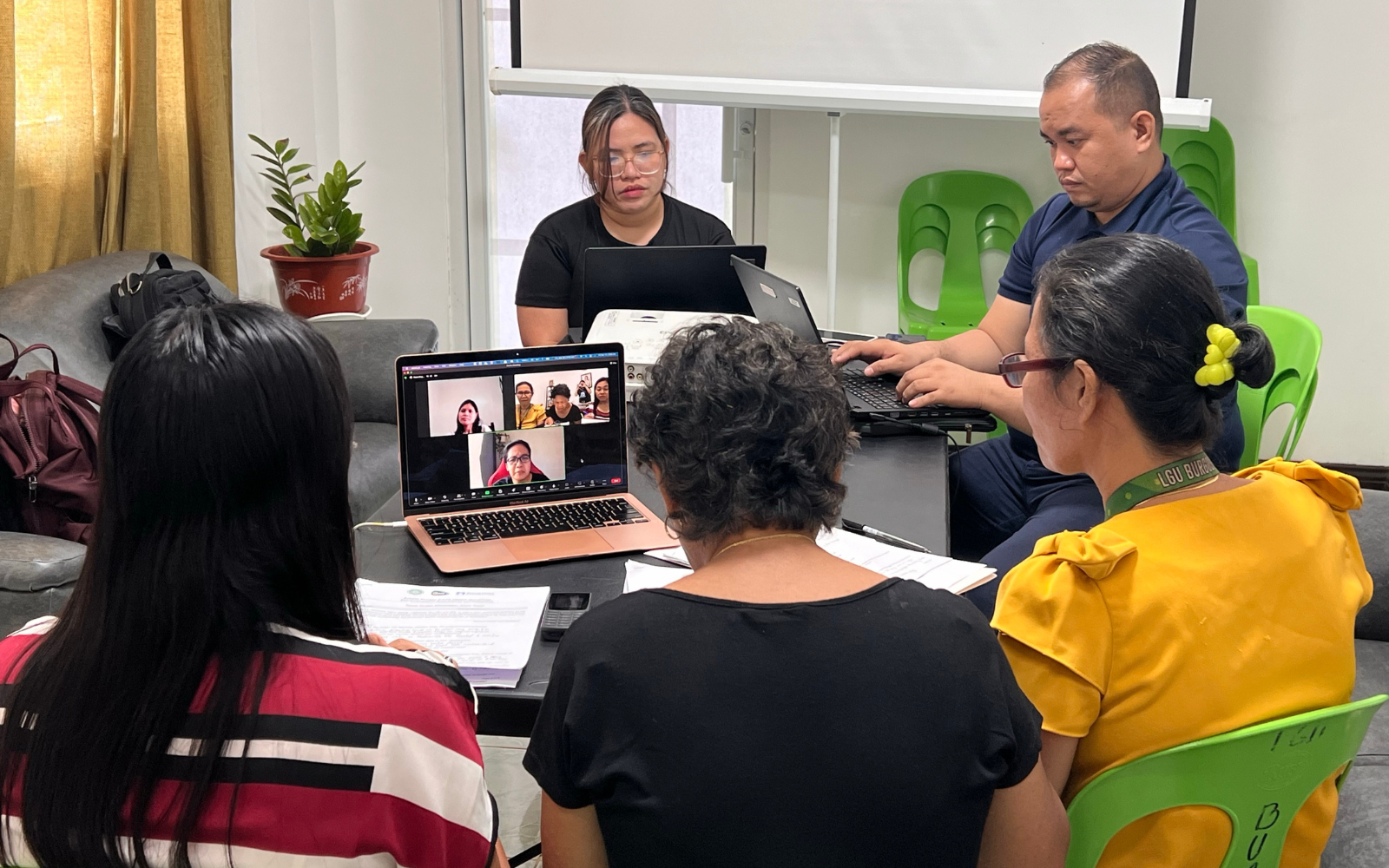
Capacity Building and Data Improvement
To enhance service delivery, the municipality launched the Barangay Leadership Program for Nutrition Security (BLPNS), training local leaders on nutrition governance. This led to the development of Barangay Nutrition Action Plans (BNAP) across all six barangays, each with dedicated budget allocations.
Efforts were also made to improve data accuracy. The MNAO, Mardy Arones, implemented a hands-on approach to monitoring data quality, ensuring standardized weight and height measurements. The Measles-Rubella Supplemental Immunization Activity (MR-SIA) campaign was integrated with Operation Timbang Plus (OPT+) to streamline health and nutrition initiatives.
Additionally, the municipality strengthened its referral system for severely acute malnourished (SAM) and moderately acute malnourished (MAM) children, as well as nutritionally-at-risk (NAR) pregnant women. Identified cases were immediately referred for appropriate interventions, including supplementary feeding programs.
Institutionalizing Nutrition Programs

Burgos established the BHW and BNS Academy to provide annual training for frontline health workers. This initiative contributed to improved OPT+ coverage, which increased from 64.17% in 2022 to 86.36% in 2023.
The municipality also appointed breastfeeding advocates in each barangay to promote and support early childhood nutrition. These efforts reflect Burgos’ commitment to creating a sustainable and community-driven approach to nutrition improvement.
Through multi-stakeholder collaboration, Burgos has made great progress in addressing malnutrition. Preliminary data suggests a positive trend in reducing stunting rates, with a recorded 13.74% stunting rate in 2023 from 19.16% in 2022, and a goal to further reduce it to 11.5% by 2025. This progress reflects the collective efforts of health leaders and workers, and community members. By institutionalizing these efforts and continuing to build partnerships, Burgos is paving the way for a healthier future for its residents.
Related articles:
Real-Time Health Data: How Pilar, Siargao is Using the ZFF Pook Malusog Dashboard
“A dream come true for my municipality.”
For Mayor Liza Resurreccion, having a real-time data platform to track the health and nutrition status of her municipality has always been a dream. Now, with the Zuellig Family Foundation (ZFF) Pook Malusog Dashboard, that dream is a reality.
Pilar, a fifth-class island municipality, faces constant challenges, from natural disasters to financial limitations. But Mayor Liza saw an opportunity in digitization. With the support of ZFF, she ensured that every Pilarnon could access quality health and nutrition services.
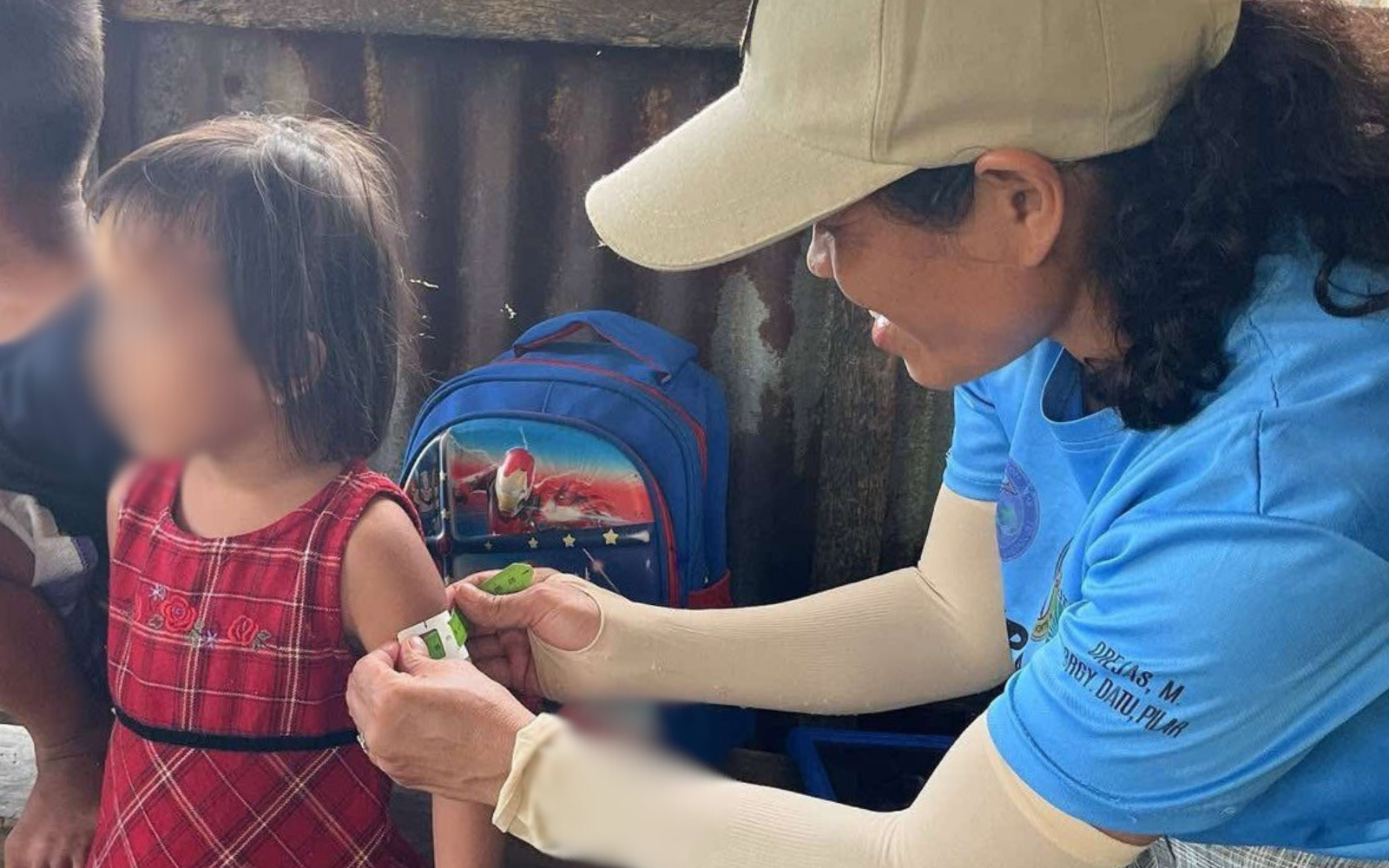
During a Local Health Board meeting, she stressed the importance of data-driven and evidence-based governance. She urged local leaders, including 15 barangay captains and health teams, to use data in making decisions that directly impact their communities.
The pilot implementation in Pilar covered five barangays and recorded vital data: 428 children (0-59 months), 36 pregnant women, and 357 households. Through the ZFF Pook Malusog Dashboard, they monitored nutritional improvements and identified areas needing urgent intervention, leading to better health promotion, referrals, and coordination for food security and social assistance.
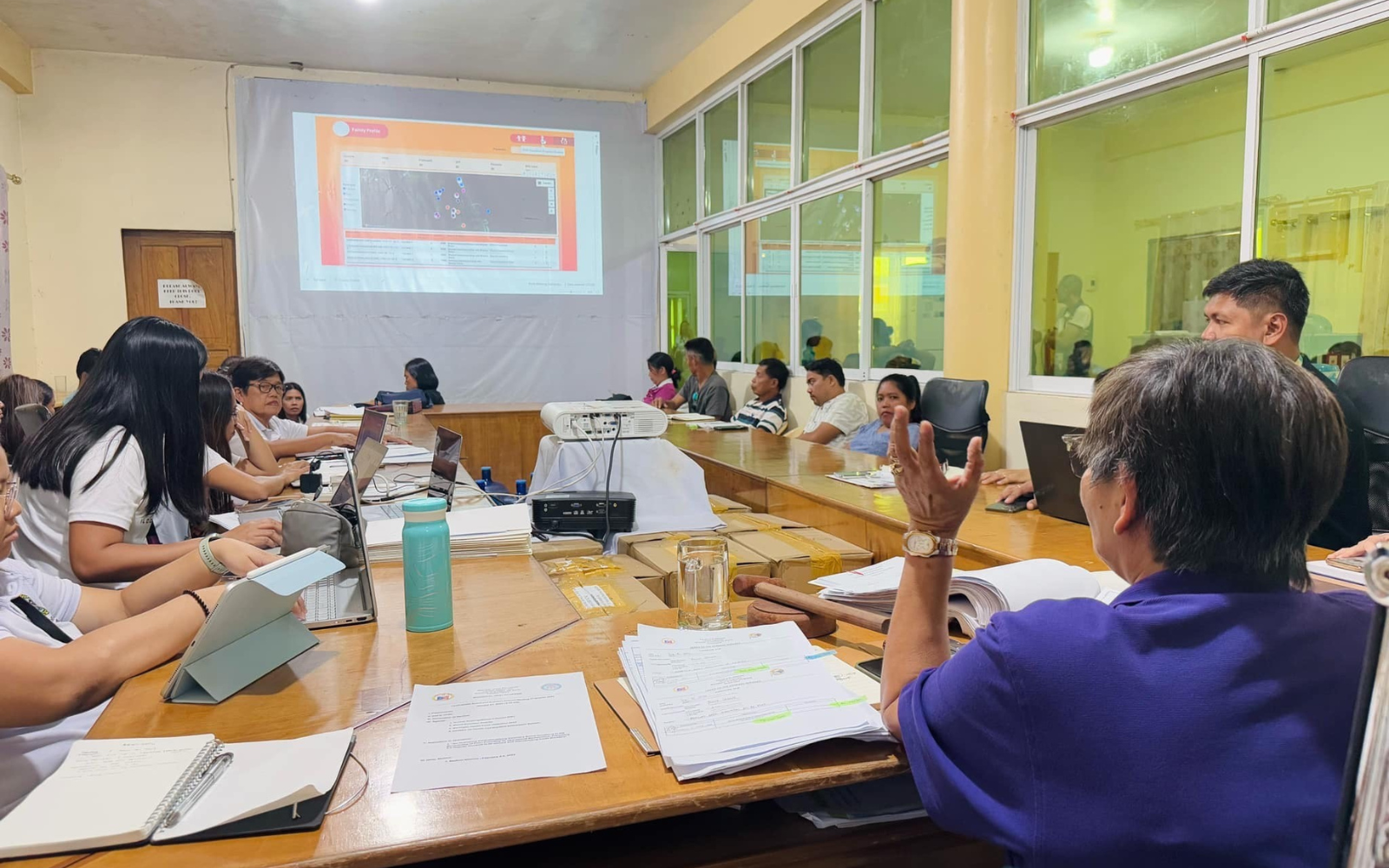
The platform created a sense of urgency among health workers, allowing them to visualize the extent of the problem in real time. Local councils, such as the Municipal Nutrition Committee, used the data to advocate for immediate interventions and budget prioritization.
Pilar has a history of strengthening its health system. The municipality completed ZFF’s Municipal Leadership and Governance Program (MLGP) in 2016-2017 and later joined ZFF’s Nutrition and Health Leadership (NutriHeaL) Program under the Ahon Siargao initiative in 2023. With increasing need for a reliable data system that can withstand natural disruptions, Pilar is now focusing on strengthening its Health and Nutrition Information System (HNIS).
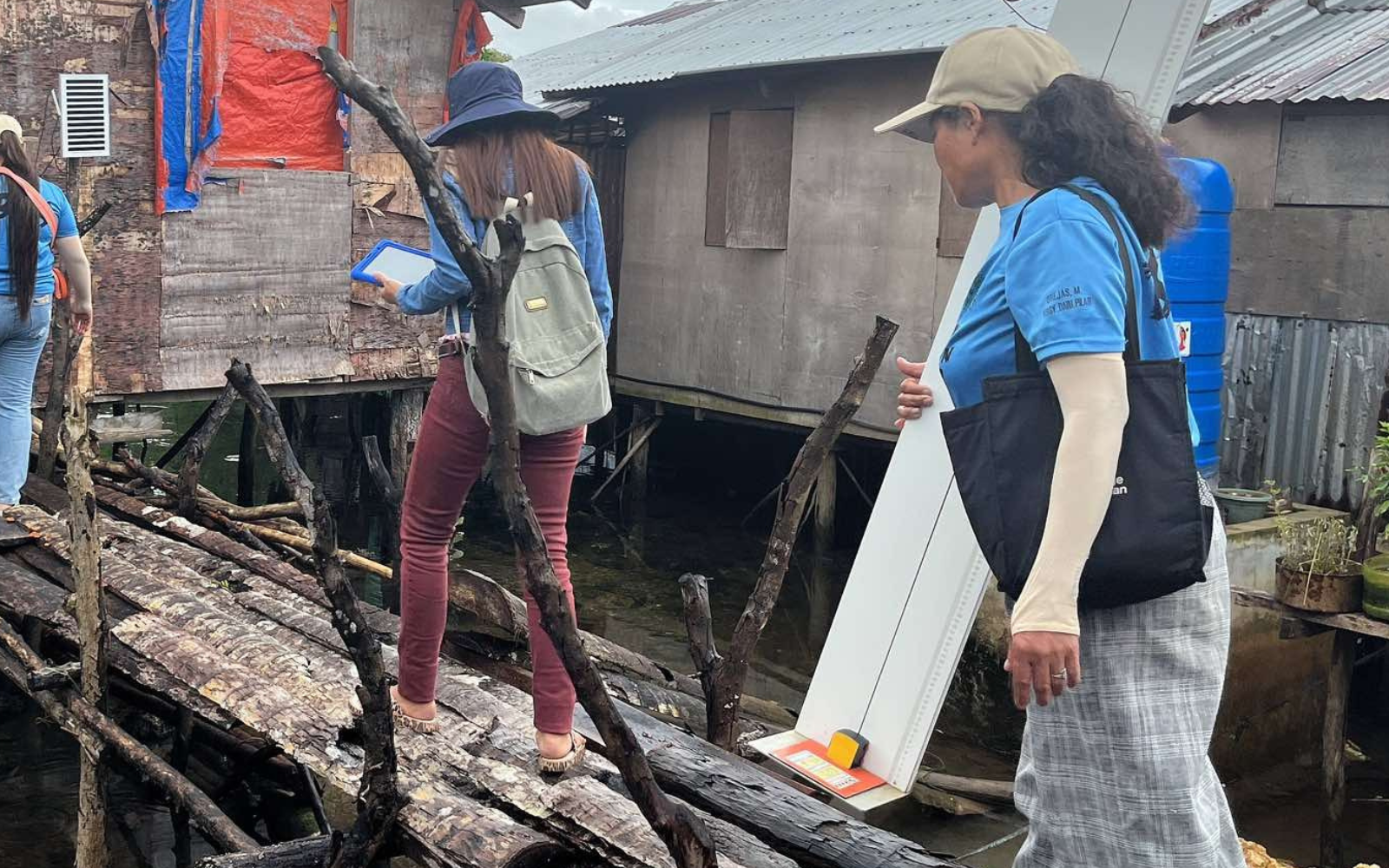
A total of 29 health and nutrition workers—including Rural Health Unit (RHU) midwives, nurses, and barangay nutrition scholars—were trained under ZFF’s program on data collection and database management. As a result, Pilar successfully deployed the tool across five pilot barangays, enabling midwives, nurses, and nutrition scholars to track children and pregnant women in real time. The system also mapped household profiles, allowing for a deeper analysis of health determinants like socio-economic conditions, water and electricity sources, and access to health insurance and social protection programs.
This 2025, Pilar initiated its annual Operation Timbang (OPT) survey equipped with the ZFF Pook Malusog Dashboard. What began with five pilot barangays has now expanded to 15, achieving municipal-wide HNIS coverage. With ZFF’s continued support, Pilar serves as a model for other LGUs in their own OPT monitoring and similar activities.
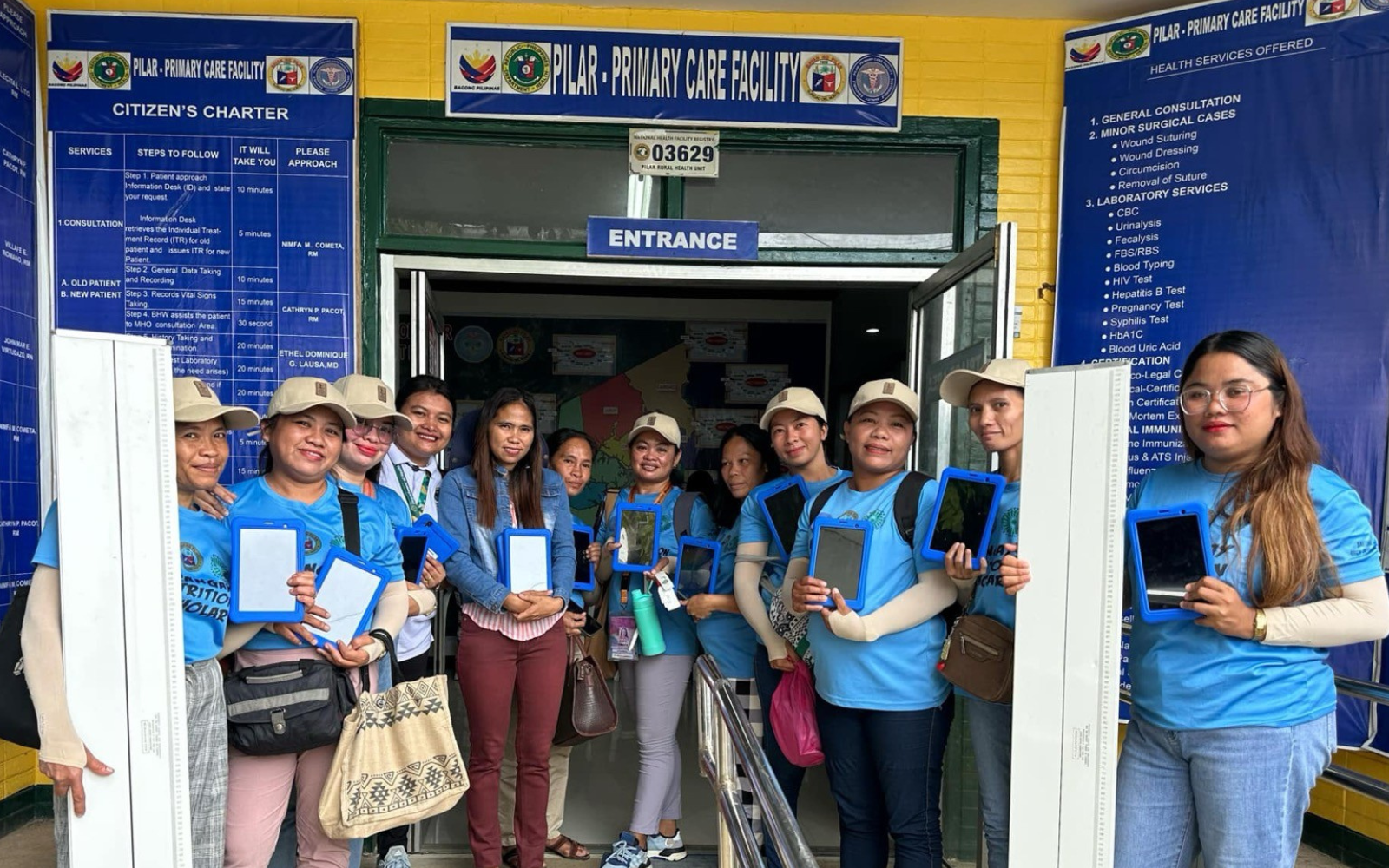
Related articles:
Empowering Barangays and Communities through Nutrition Governance: Pilar’s Journey
Before becoming a municipality in 1953, Pilar was a barrio (village) of Dapa in Siargao Island. Today, it has 15 barangays with a population of nearly 11,000 as of 2023. Farming, mainly copra and rice, remains the primary livelihood in Pilar and its neighboring towns.
As a fifth-class municipality, Pilar has received support from various organizations, including the Zuellig Family Foundation (ZFF). Mayor Liza Resurreccion first joined ZFF and the Department of Health’s (DOH) Municipal Leadership and Governance Program (MLGP) in 2016-2017, which helped her understand the deeper connections between health and social factors. While she initially focused on improving healthcare in general, she later realized that nutrition needed special attention.
Pilar was later included in ZFF’s Municipal Nutrition and Governance Program (MNGP)-Nutrition and Health Leadership (NutriHeaL) under the Ahon Siargao initiative. This support came at the right time, as the municipality faced worsening nutrition challenges, especially after Typhoon Odette.
“My involvement in ZFF’s program changed how I saw healthcare in Pilar,” said Mayor Liza. “But I soon realized that nutrition, particularly among children, was another urgent issue that needed action.”
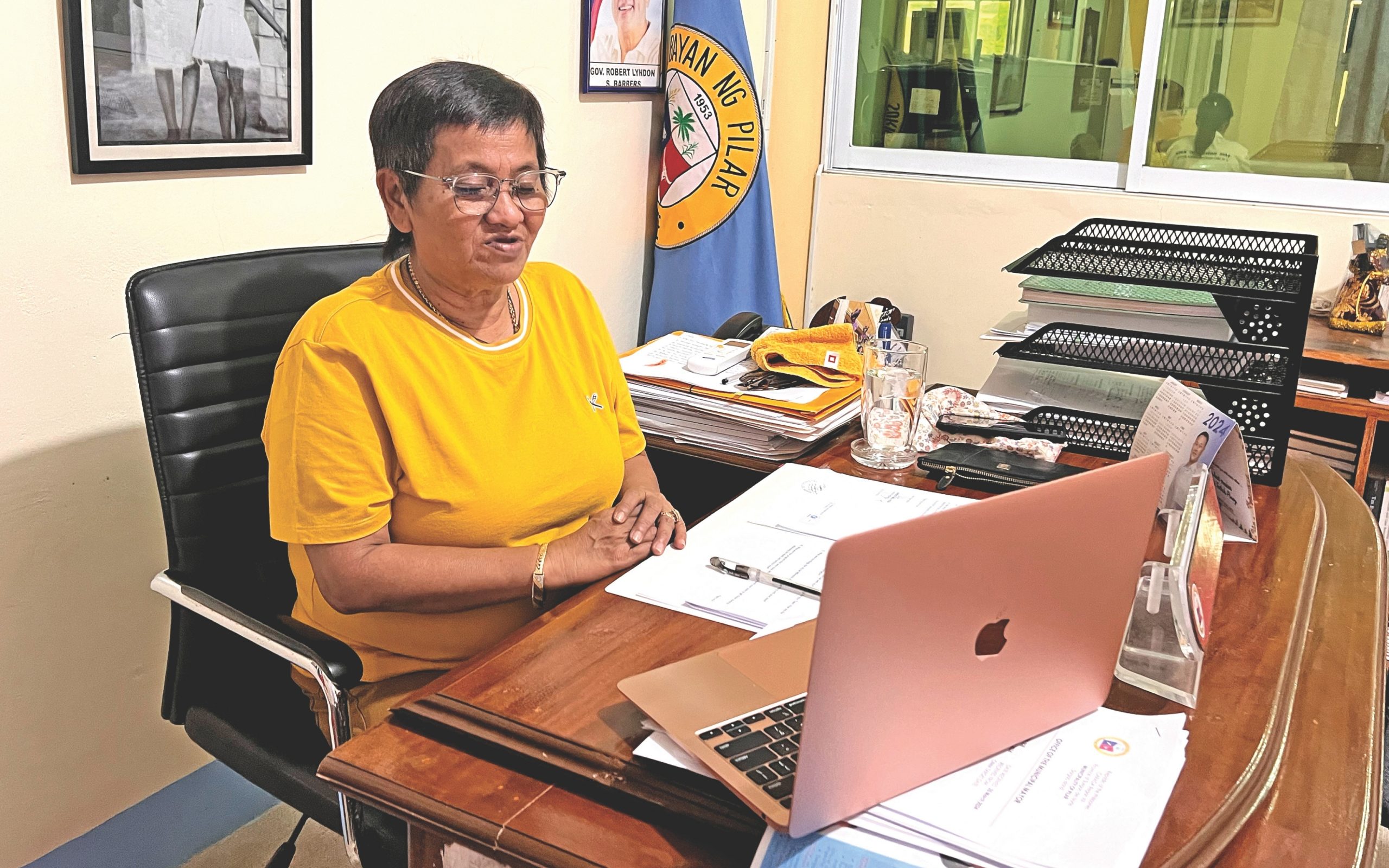
Understanding the Problem
Marifi Villa from the Municipal Social Welfare and Development Office (MSWDO) explained that malnutrition in Pilar stems from poverty, food insecurity, unemployment, and lack of nutrition knowledge. Cultural practices also play a role in shaping eating habits.
Dr. Ethel Dominique Lausa, Municipal Health Officer and part of DOH’s Doctors to the Barrio (DTTB) program, noted that some parents struggle to accept new ideas. “Some parents are eager to learn about nutrition and its impact on their children,” she said. “But others believe that as long as they can feed their families three times a day, it doesn’t matter what kind of food they eat.”
Despite government efforts, some parents remain uninterested in initiatives like backyard farming, and many teenage parents lack the knowledge needed to provide proper nutrition for their children.
In 2023, Pilar’s stunting rate for children under two years old increased to 10.94% from 9.34% in 2022. Wasting also rose to 5.14% from 2.66%. However, these higher numbers may reflect improved data collection after barangay health workers and nutrition scholars received better tools for measuring children’s height and weight.
Taking Action
Under Mayor Liza’s leadership, barangay officials strengthened their Barangay Nutrition Committees by passing ordinances and executive orders (EOs). They also held regular Municipal Nutrition Committee (MNC) meetings to coordinate efforts.
The Sangguniang Bayan of Pilar adopted the RA 11148 (Kalusugan at Nutrisyon ng Magnanay Act) and EO 51 (Milk Code). They also passed a Municipal Nutrition Code, ensuring a more structured approach to nutrition programs. Recognizing the need for proper funding, Mayor Liza doubled the nutrition budget to 500 thousand pesos in 2023 and further increased it to 1 million pesos in 2024.
Pilar also trained local leaders through the Barangay Leadership Program for Nutrition Security (BLPNS), equipping Barangay Nutrition Committees with the skills to address malnutrition at the grassroots level. As a result, all 15 barangays developed their Barangay Nutrition Action Plans and allocated funds for nutrition programs.
Community Efforts
A daily Supplemental Feeding Program now helps malnourished children aged 0-59 months, with a 120-day feeding program in Day Care Centers and additional feeding sessions in barangays. Barangay Datu even launched a feeding program specifically for nutritionally at-risk (NAR) pregnant women.
To address food insecurity, barangays are promoting backyard farming, allowing families to grow their own nutritious food. Employment programs also prioritize parents from low-income families, particularly those under the Department of Social Welfare and Development’s (DSWD) 4Ps program.
To improve awareness, Pilar plans to integrate nutrition counseling into pre-marriage seminars, ensuring that future parents understand the importance of proper nutrition.
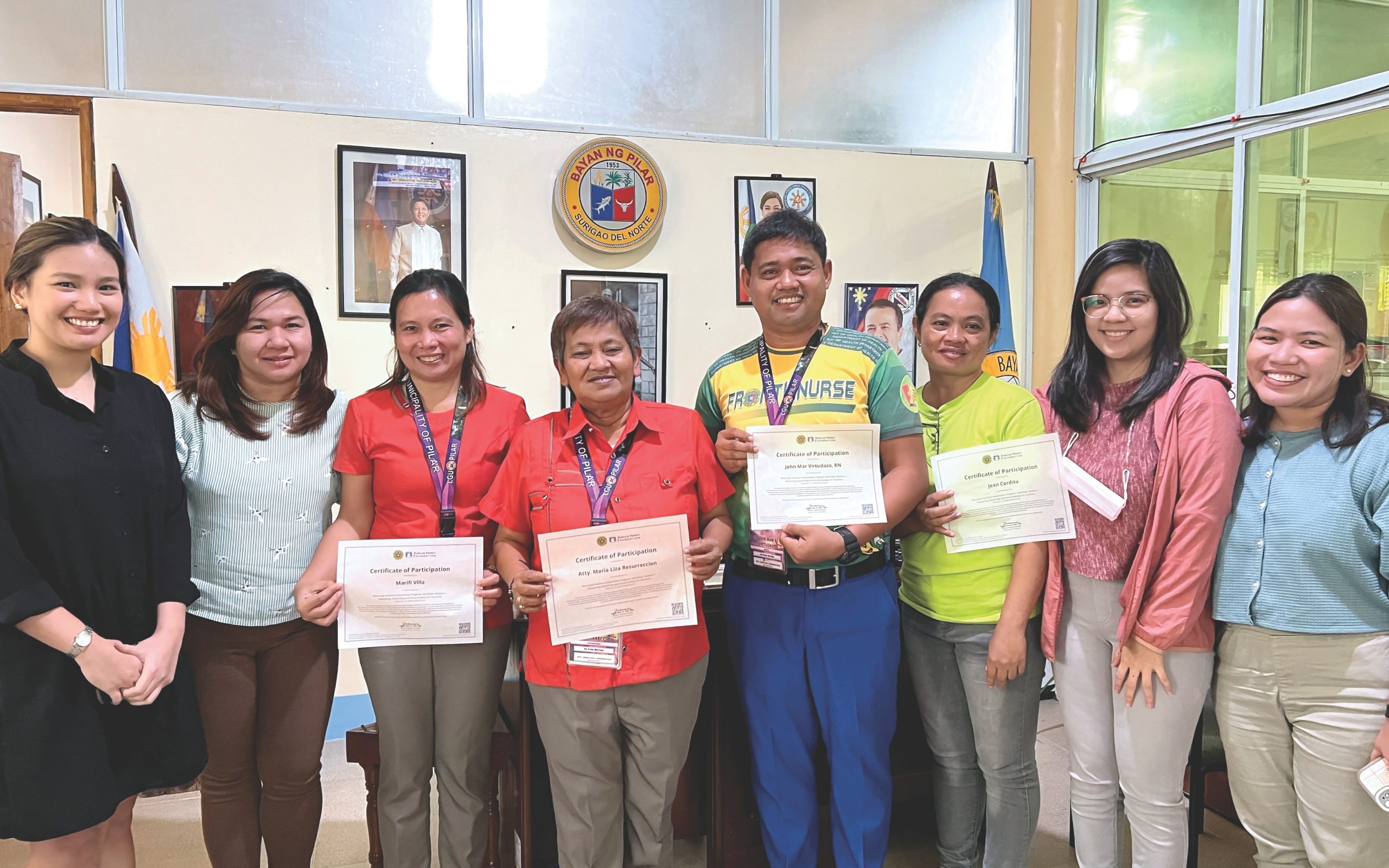
Monitoring Progress
Pilar has embraced data-driven approaches to track nutrition trends and improve services. A monitoring tool for pregnant women helps ensure they receive essential health and nutrition services, while another tool for children aged 0-23 months allows for early detection of health risks.
To centralize health and nutrition data, Pilar adopted ZFF’s Pook Malusog Dashboard, a Health and Nutrition Information System (HNIS), making it easier for stakeholders to access relevant data. The municipality partnered with ZFF to train barangay health workers and midwives on using the Dashboard, and Mayor Liza allocated 150 thousand pesos for purchasing mobile devices to support its implementation.
Results and Future Plans
While nutrition indicators still fluctuate, Mayor Liza and her team see changes in parental behavior as a significant achievement. “When parents saw that their local officials truly cared about their children’s nutrition, they became more open to change,” said MSWDO Villa.
Awareness about nutrition has grown beyond mothers and children, reaching the wider community. To further strengthen these efforts, the municipality is working to create a permanent position for the Municipal Nutrition Action Officer (MNAO) to ensure continuity in nutrition programs.
One of Pilar’s biggest milestones is the establishment of a Super Rural Health Unit (RHU) with expanded services, including antenatal care, immunization, and nutrition-focused interventions. This facility will also house the MNAO office, centralizing Pilar’s nutrition governance efforts.
Related articles:
Building Stronger Nutrition Systems in Siargao: The Ahon Siargao Experience
In December 2021, Typhoon Odette tore through Siargao, leaving widespread destruction. Homes, farms, and businesses were destroyed, forcing local governments to focus on rebuilding roads and infrastructure. But amid these challenges, another critical issue remained: nutrition.
Siargao’s economy relies heavily on tourism, but agriculture is also essential for many residents. The typhoon made food security an even bigger problem. Food prices were already high because many goods had to be transported from the mainland. The storm’s impact worsened this situation, making it harder for families to access nutritious food.
The State of Nutrition in Siargao
From 2019 to 2022, the stunting rate in Burgos, Pilar, and Sta. Monica fluctuated, reaching medium public health concern levels (10%-<20%) based on World Health Organization (WHO) classification. Wasting rates were lower but still needed attention. While these municipalities had an 85% Operation Timbang Plus (OPT+) coverage on average, improving screening and data collection was necessary to understand and address nutrition challenges better.
Ahon Siargao: A Community-Led Nutrition Initiative
In response, the Ahon Siargao Capacity Enhancement (CAPE) Program was launched. Led by the Alumni Association of the Asian Institute of Management (AAAIM) and supported by private organizations and civil society groups, including the Zuellig Family Foundation (ZFF), the program aimed to improve nutrition for pregnant women and children under two years old.
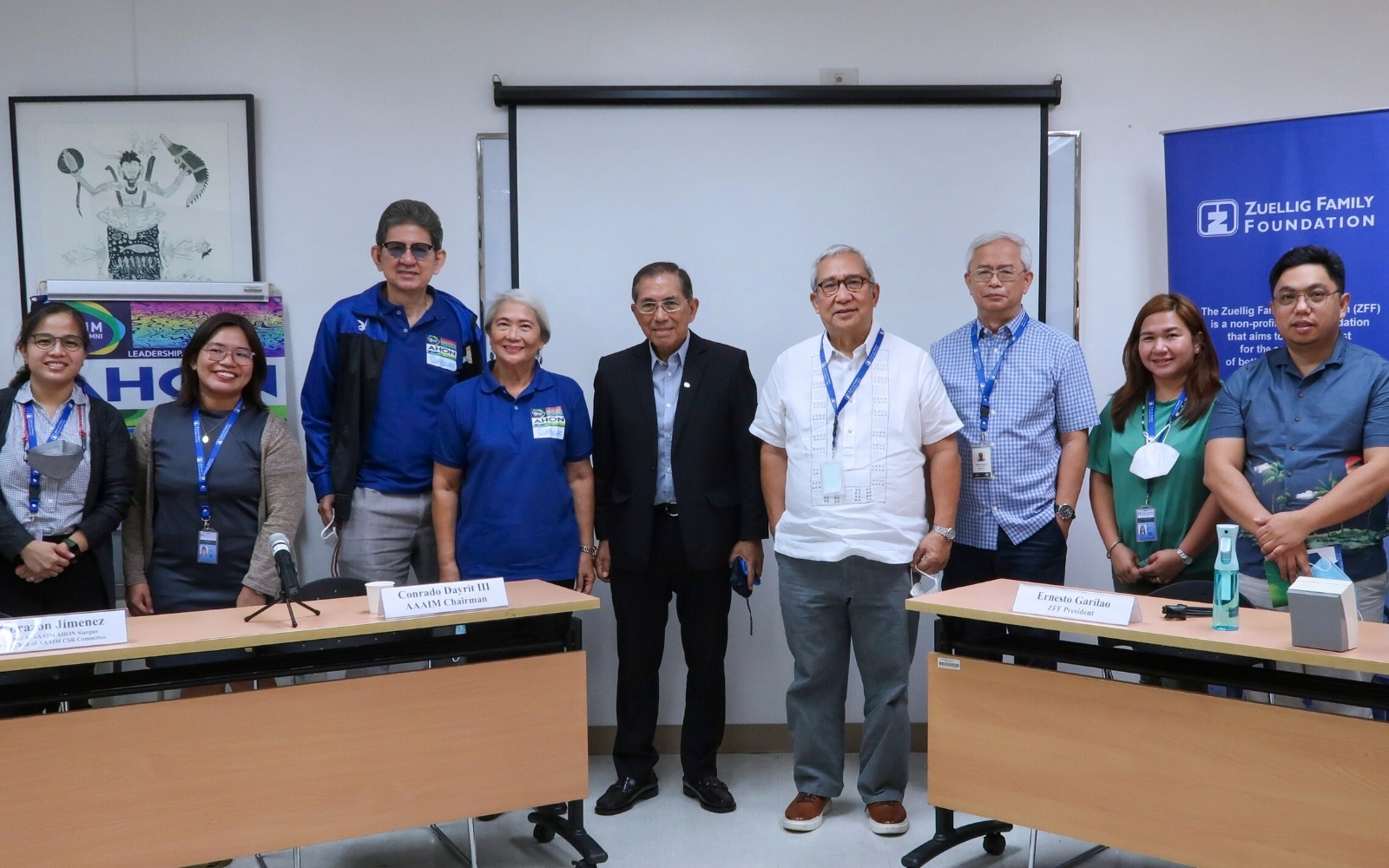
The initiative built on lessons from past nutrition programs and followed ZFF’s 8 Critical Knobs of Nutrition Governance. It focused on three key areas:
- Strengthening Municipal Nutrition Committees
- Investing in nutrition planning and programs
- Training barangay leaders, health workers, and volunteers
Efforts included regular Operation Timbang Plus sessions, pregnancy tracking, prenatal services, immunization, and feeding programs for at-risk mothers and children. Through these, Siargao’s local nutrition teams became more cohesive, working together towards shared goals.
Stronger Nutrition Systems, Better Outcomes
Through the ZFF’s Municipal Nutrition Governance Program (MNGP)-Nutrition and Health Leadership (NutriHeaL), Burgos, Pilar, and Sta. Monica improved their OPT+ coverage from 2022 to 2023. Better data allowed for informed decision-making, leading to:
- More accurate tracking of malnutrition cases
- Stronger referral systems for severe and moderate acute malnutrition (SAM and MAM)
- Higher rehabilitation rates for malnourished children

Key Leadership Lessons
The three municipalities learned that effective nutrition governance requires:
- Collaboration: Engaging local governments, national agencies, private organizations, and NGOs to ensure comprehensive nutrition services. Regular meetings led by mayors helped address emerging challenges.
- Legislation: Establishing Barangay Nutrition Committees through ordinances and adopting key nutrition laws like the Municipal Nutrition Code and RA 11148 (First 1,000 Days Law).
- Data-Driven Decisions: Using technology to improve health and nutrition planning, ensuring programs are based on real community needs.
- Strong Leadership: Having a dedicated Municipal Nutrition Action Officer (MNAO) to coordinate programs and ensure sustainability.
- Community Involvement: Encouraging barangay leaders to take active roles in promoting health and nutrition initiatives.
Challenges and Next Steps
While progress has been made, reducing malnutrition remains a challenge. By 2025, Burgos aims to lower stunting to 11.5%, while Pilar and Sta. Monica target rates below 10%. To achieve this, local governments plan to:
- Maintain a full-time, well-trained MNAO
- Secure permanent employment for Barangay Nutrition Scholars (BNSs) and Barangay Health Workers (BHWs)
- Strengthen programs addressing teenage pregnancy and malnutrition
- Increase parental involvement in health and nutrition education
- Empower barangay leaders to champion nutrition efforts
- Ensure nutrition programs continue despite leadership changes
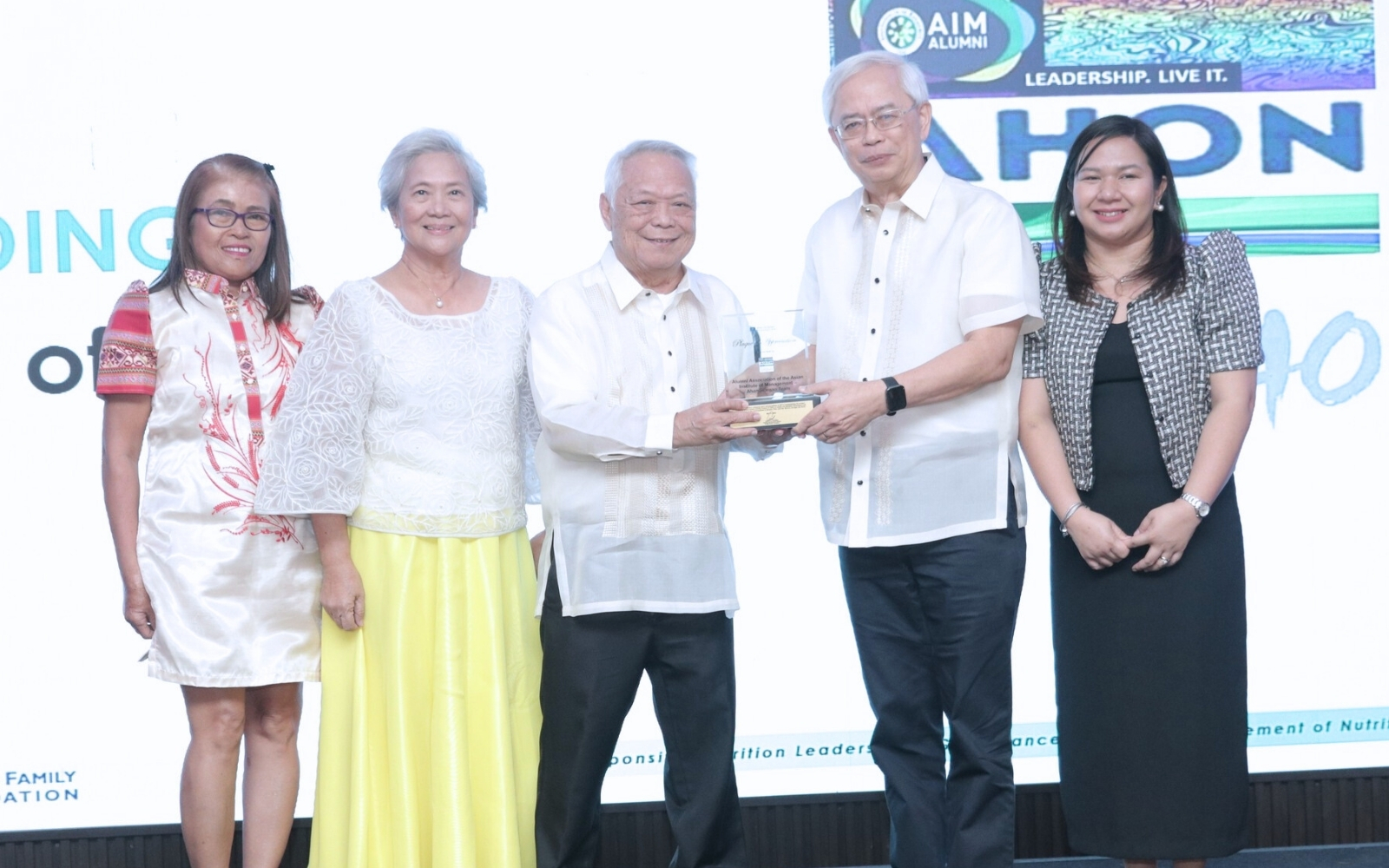
The Ahon Siargao initiative has proven that with strong leadership, collaboration, and commitment, communities can rebuild not just infrastructure, but also the systems that keep children healthy. Siargao’s journey shows that even in the face of disaster, investing in nutrition can pave the way for a healthier future.